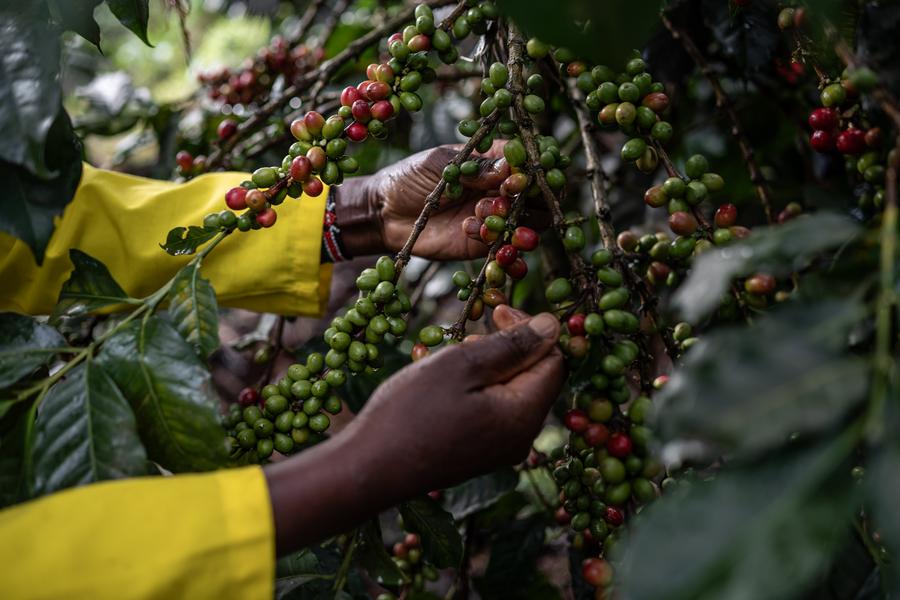
In a cozy café nestled in Nairobi's Karen district, chestnut-colored AA-grade Kenyan coffee beans are carefully ground, extracted and brewed under the focused gaze of a local barista.
The bitterness transforms into something wondrous, a bright acidity blossoms, reminiscent of ripe, juicy tropical fruits. The aroma quickly fills the room, invigorating the senses.
Eastern Africa, where Kenya is located, shares an inseparable bond with coffee, while Ethiopia, in the Horn of Africa, is widely hailed as the birthplace of coffee.
Specialty beans like Kenya AA and Ethiopia Yirgacheffe are beloved by coffee aficionados around the globe and remain highly sought-after commodities on the world market.
Unexpected gift from Africa
Coffee is often regarded as an unexpected gift from Africa.
Legend has it that around 800 CE, in the Kaffa region of southern Ethiopia, a goat herder named Kaldi noticed his goats becoming unusually energetic and lively after consuming red berries from an unfamiliar shrub.
Curious, Kaldi tried the berries himself and experienced a similar invigorating effect. He shared the discovery with a local monastery, where the monks, initially skeptical, eventually found that the beverage made from these berries helped them stay awake during long hours of prayer.
The tale, though likely apocryphal, is widely accepted as the origin story of coffee, with the word "coffee" believed to derive from "Kaffa," the region where it was first discovered.
Today, coffee remains integral to Ethiopian culture, with expressions like "Buna dabo naw (Coffee is our bread)" illustrating its importance.
Arabica and Robusta, the two most prominent coffee bean varieties globally, are believed to have their origins in Africa. The highland climates of East Africa provide ideal conditions for cultivating Arabica beans, while the lowland regions of Central, Western and parts of Eastern Africa are well-suited for Robusta cultivation.
Both varieties play crucial roles in the global coffee industry, catering to diverse consumer preferences and supporting the economies of coffee-producing regions worldwide.
The Lake Victoria Crescent region, with its suitable terrain and tropical climate, provides an ideal environment for cultivating Robusta coffee. This area, characterized by its fertile soils and consistent rainfall, has long been recognized as the native habitat of wild Robusta coffee trees.
For centuries, wild Robusta coffee trees have thrived in Uganda's natural forests. Long before the arrival of European colonizers, the Baganda people had already begun cultivating coffee.
Today, in traditional coffee-growing regions such as the areas surrounding Mount Elgon and the Rwenzori Mountains, some ancient coffee trees still stand, bearing witness to the country's enduring coffee heritage.














